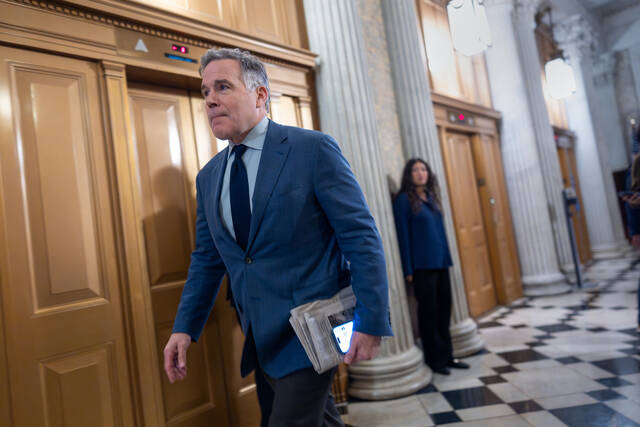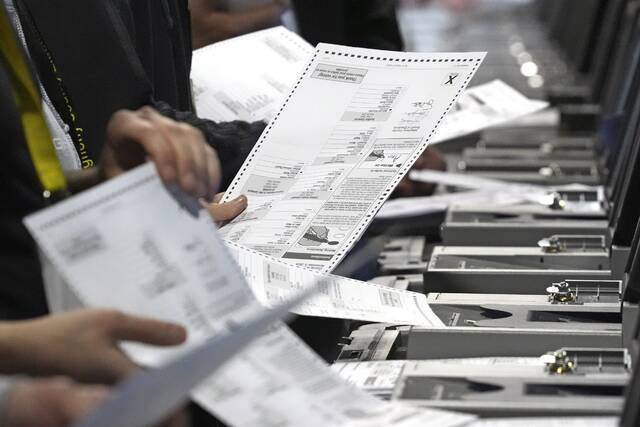Momentum is gaining in some circles to redefine what “fully vaccinated” means now that boosters are widely available and the omicron variant is surging nationwide.
Dr. Anthony Fauci, chief medical adviser to the White House and director of the National Institute of Allergy and Infectious Diseases, told CNBC on Friday that tweaking what being fully vaccinated means is “on the table and open for discussion.”
But some health experts say that’s unnecessary.
“There is no scientific basis to classify someone who has two doses of a vaccine as equivalent to someone with zero,” said Dr. Amesh Adalja, a Pittsburgh-based infectious disease expert and critical care physician.
After federal health officials recommended booster vaccine doses for all adults late last month, some read the recommendation as an indication that a booster now would be part of the full vaccination regimen.
New Mexico Gov. Michelle Lujan Grisham said she believed that people should be considered fully vaccinated only if they received three shots. Connecticut Gov. Ned Lamont said if people “were vaccinated more than six months ago, (they’re) not fully vaccinated.”
Adalja said identifying only those who received booster shots as fully vaccinated essentially would classify people who were vaccinated but haven’t gotten a booster at the same level as those who remain unvaccinated.
“Boosters are important for those at high risk for severe disease, but of lesser value to those without risk factors for hospitalizations,” he said.
Adalja has said the focus should remain on vaccinating the unvaccinated rather than booster shots.
Fauci has said he believes the definition will end up including that third booster dose.
“I don’t think anybody would argue that optimal protection is going to be with a third shot. It’s a technical, almost semantic definition, and it is the definition for requirements,” he said in a Dec. 9 interview with CNN.
He noted: “My own personal opinion is that it is going to be a matter of when, not if.”
For now, the CDC has maintained its definition of “fully vaccinated” as two weeks out from the second in a two-shot series or two weeks out from the first dose of a one-shot vaccine.
Dr. Jonathan Baktari, a pulmonary care physician and chief executive of e7Health, disagrees with that. He said people should think of the vaccines as a three-shot series.
“I no longer call it a booster — it’s definitely a three-shot series,” he said, noting he believes covid vaccines will go the way of flu vaccines in that people need updated versions each season.
“I think we just have to kind of get over ‘did you get a booster?’ It should be more like, ‘did you finish your three-shot series? ’” he said.
Dr. Paul Offit, director of the vaccine education center at Children’s Hospital of Philadelphia, said the debate doesn’t take into account “whether booster doses should have been recommended for everyone” in the first place.
“The premise of the third dose, I think, is ill-conceived,” Offit said, noting the goal of any vaccine is not eradication, but rather prevention of serious illness and death.
“Why are we recommending a booster dose when all evidence to date, with the exception of people over 65, has shown that protection against serious illness has been maintained?” he asked.
Boosters have been pushed by some as a way to protect against breakthrough infections — or cases in people who received two doses of the Pfizer or Moderna vaccines or one dose of the one-shot Johnson & Johnson vaccine. In Allegheny County, more than a third of cases have fallen into that category over the past two months, county leaders have said.
Offit said he believes the definition of what constitutes a breakthrough case should change. Asymptomatic or mildly symptomatic cases are considered breakthroughs, or failures, but he said it’s really an example of the vaccine “working well and doing what it’s supposed to do.”
A spokesman for the state Department of Health said the state has no plans to change the definition of what it means to be fully vaccinated.
“We will continue to follow the (U.S. Centers for Disease Control and Prevention) definition of fully vaccinated,” spokesman Mark O’Neill said.
The CDC on Nov. 29 expanded its recommendations on covid-19 booster shots, suggesting that anyone older than 18 receive one. The expansion was based on the emergence of the omicron variant, as “early data from South Africa suggest increased transmissibility,” CDC Director Dr. Rochelle Walensky said.
Some medical experts agree with Fauci and Baktari.
“We should think of the covid-19 vaccine as a three-dose vaccine,” Dr. Peter Hotez, a dean at Baylor Medical, told CNN.
It remains to be seen whether covid-19 will require yearly shots or if the booster will keep immunity from dipping as it did months out from initial vaccinations. Regardless, Adalja said, shifting focus to more shots for the vaccinated could be detrimental to coming out of this pandemic.
“I don’t think preventing mild illness with boosting is a priority,” he said. “It’s first and second doses that change the trajectory of the pandemic, not boosters.”








